Nightmares and anxiety disorders have long been intertwined, with the former often being seen as a manifestation or consequence of the latter. The relationship between nightmares and anxiety disorders is a complex one, with both serving as symptoms and triggers for each other. This article aims to explore this link in detail, shedding light on the prevalence of nightmares in anxiety disorders, the causes behind them, and the effects they have on individuals. Additionally, it will delve into various research studies conducted on this topic and discuss the available methods for managing and addressing nightmares and anxiety disorders. By gaining a better understanding of this connection, we can take steps towards improving the well-being of those affected by these conditions.
Nightmares and Anxiety Disorders: An Overview
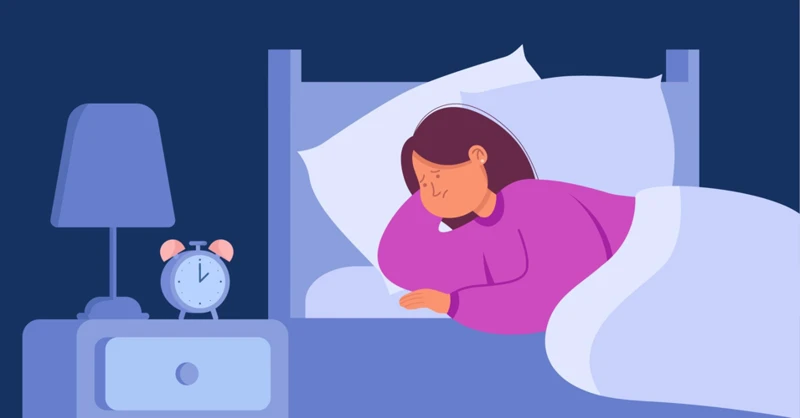
Nightmares and anxiety disorders share a close connection, with both playing significant roles in the psychological well-being of individuals. Understanding this relationship is crucial for addressing and managing these conditions effectively.
1. Definition of Anxiety Disorders
Anxiety disorders encompass a range of mental health conditions characterized by excessive and persistent feelings of fear, worry, and apprehension. These disorders can have a profound impact on daily life, causing significant distress and impairment. Common forms of anxiety disorders include generalized anxiety disorder (GAD), panic disorder, social anxiety disorder, and post-traumatic stress disorder (PTSD).
2. Understanding Nightmares
Nightmares are vivid and disturbing dreams that can cause intense fear, anxiety, and often lead to waking up. They are typically associated with negative emotions and imagery, such as being chased, falling, or experiencing a traumatic event. Nightmares can vary in frequency and intensity, but for individuals with anxiety disorders, they tend to be more prevalent and distressing.
While the exact mechanisms behind the relationship between nightmares and anxiety disorders are not fully understood, there are a few key factors at play. First, nightmares can serve as symptoms of anxiety disorders, reflecting the underlying psychological distress experienced by individuals. Second, nightmares can also act as triggers for anxiety, potentially exacerbating existing anxiety symptoms and causing heightened levels of stress. This bidirectional relationship between nightmares and anxiety disorders contributes to a cycle of distress and can significantly impact the overall well-being of those affected.
1. Definition of Anxiety Disorders
Anxiety disorders encompass a range of mental health conditions characterized by excessive and persistent feelings of fear, worry, and apprehension. These disorders can have a profound impact on daily life, causing significant distress and impairment. Common forms of anxiety disorders include generalized anxiety disorder (GAD), panic disorder, social anxiety disorder, and post-traumatic stress disorder (PTSD). Each disorder has its own specific criteria and symptoms, but they all share a common thread of excessive and irrational fear or worry that interferes with an individual’s ability to function normally. It is important to note that anxiety disorders are more than just occasional feelings of stress or nervousness; they are chronic conditions that require proper diagnosis and treatment in order to manage effectively. If left untreated, anxiety disorders can have a detrimental impact on various aspects of a person’s life, including their relationships, work performance, and overall quality of life. Understanding the definition and nature of anxiety disorders is crucial for recognizing the symptoms and seeking appropriate help and support.
2. Understanding Nightmares
Understanding nightmares is essential in comprehending their relationship with anxiety disorders. Nightmares are vivid and distressing dreams that elicit intense fear, anxiety, and often prompt individuals to awaken abruptly. They are characterized by the presence of negative emotions, frightening imagery, and a sense of threat or danger. Nightmares can vary in frequency and intensity, and for individuals with anxiety disorders, they tend to be more prevalent and distressing.
Several factors contribute to the occurrence of nightmares. Unresolved psychological issues, such as traumatic experiences or unresolved conflicts, can manifest in nightmares as the subconscious mind attempts to process and cope with these unresolved issues. Cultural and historical perspectives also play a role in shaping the content of nightmares. Different cultures and historical periods have their own unique interpretations of nightmares and their significance, which can influence the individual’s perception and reactions to these nighttime experiences.
The effects of medication and substances on dream content can influence the occurrence of nightmares. Certain medications, such as antidepressants or beta-blockers, have been known to affect dream patterns and can contribute to the frequency of nightmares. Similarly, the consumption of substances like alcohol or illicit drugs can also affect dream content and increase the likelihood of experiencing nightmares.
By exploring the various factors that contribute to nightmares and understanding their connection to anxiety disorders, individuals and healthcare professionals can gain insights into potential triggers and develop strategies for managing and alleviating the distress caused by both nightmares and anxiety disorders.
The Link between Nightmares and Anxiety Disorders
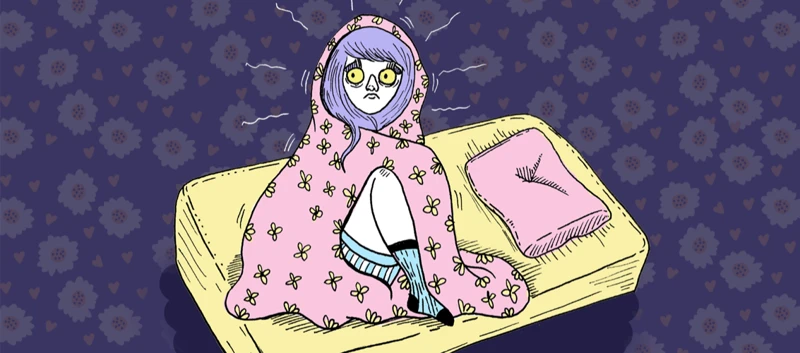
The link between nightmares and anxiety disorders is multifaceted, with both influencing and interacting with each other. Understanding this connection is crucial for developing effective treatment strategies.
1. Nightmares as a Symptom of Anxiety Disorders
Nightmares can serve as a symptom of anxiety disorders, acting as a manifestation of the underlying psychological distress and anxiety experienced by individuals. They often reflect the fears, worries, and traumatic experiences that are prevalent in anxiety disorders. For example, someone with social anxiety disorder may have nightmares about embarrassing social situations or being judged by others. Recognizing nightmares as a symptom can help healthcare professionals in diagnosing and treating anxiety disorders effectively.
2. Nightmares as a Trigger for Anxiety
In addition to being a symptom, nightmares can also act as triggers for anxiety. When individuals experience distressing nightmares, it can lead to heightened anxiety and stress levels upon waking up. These intense emotions can persist throughout the day, impacting mood, cognitive function, and overall well-being. Recurrent nightmares can create a fear of sleep or going to bed, ultimately contributing to sleep disturbances and further exacerbating anxiety symptoms.
Understanding the intricate link between nightmares and anxiety disorders is essential for individuals seeking treatment. It can provide insight into the root causes of anxiety and nightmares, allowing healthcare professionals to develop personalized treatment plans tailored to address both conditions simultaneously. By addressing and managing nightmares effectively, individuals with anxiety disorders can experience improved sleep quality and reduced anxiety levels, enhancing their overall quality of life.
For further exploration, you can read our article on unresolved issues that contribute to nightmares and anxiety disorders.
1. Nightmares as a Symptom of Anxiety Disorders
Nightmares can serve as a prominent symptom of anxiety disorders, providing insight into the individual’s emotional and psychological state. In the context of anxiety disorders, nightmares often reflect the underlying fears, worries, and anxieties experienced by the individual. These nightmares are characterized by intense and distressing dream content that mirrors the themes and concerns associated with their anxiety. Individuals with generalized anxiety disorder may frequently experience nightmares centered around catastrophic events or uncontrollable situations, while those with social anxiety disorder may have nightmares revolving around embarrassing or humiliating scenarios. Nightmares can also be a manifestation of post-traumatic stress disorder (PTSD), where individuals may relive traumatic experiences through nightmares, causing heightened levels of anxiety and distress.
The presence of nightmares in anxiety disorders can be attributed to several factors. Firstly, anxiety disorders typically involve heightened physiological arousal, such as increased heart rate and cortisol levels, which can carry over into sleep and result in more intense dreaming. Secondly, negative or traumatic experiences, such as childhood adversity or unresolved issues, play a significant role in the development of both anxiety disorders and nightmares. These experiences can predispose individuals to recurrent distressing dreams related to their anxieties. Additionally, cultural and historical perspectives on nightmares may influence how individuals with anxiety disorders experience and interpret their nightmares. Exploring these perspectives can provide valuable insights into the symbolism and meaning behind nightmares in different cultural contexts.
Understanding nightmares as symptoms of anxiety disorders is crucial for diagnosis and treatment. When present, nightmares can indicate the severity of an individual’s anxiety and serve as markers for addressing underlying psychological distress. Therapeutic interventions focused on anxiety management, such as cognitive-behavioral therapy (CBT), can help individuals cope with and reduce the frequency of nightmares by addressing the root causes of their anxiety. Addressing unresolved issues through therapy or introspection can alleviate the emotional burden that contributes to the occurrence of nightmares. Proper management of anxiety disorders and their associated nightmares can greatly improve individuals’ overall well-being and quality of life.
2. Nightmares as a Trigger for Anxiety
Nightmares not only serve as a symptom of anxiety disorders but also act as triggers for anxiety themselves. When individuals with anxiety disorders experience nightmares, it can intensify their feelings of unease, fear, and worry. The distressing content of nightmares can evoke emotional and physiological reactions, such as increased heart rate, sweating, and hyperventilation, similar to those experienced during anxiety episodes. This connection can lead to a cycle of anxiety and nightmares, where the anxiety triggered by nightmares can, in turn, exacerbate the frequency and intensity of the nightmares. This interplay between nightmares and anxiety is a significant factor in the ongoing distress experienced by individuals with anxiety disorders. Understanding this relationship is crucial for developing effective therapeutic interventions and strategies to break the cycle and provide relief for those affected.
Exploring cultural and historical perspectives on nightmares can offer insight into the different interpretations of nightmares across various societies throughout history. Additionally, certain medication and substances may impact the content and frequency of nightmares, influencing their potential to trigger anxiety.
Research and Studies on Nightmares and Anxiety Disorders
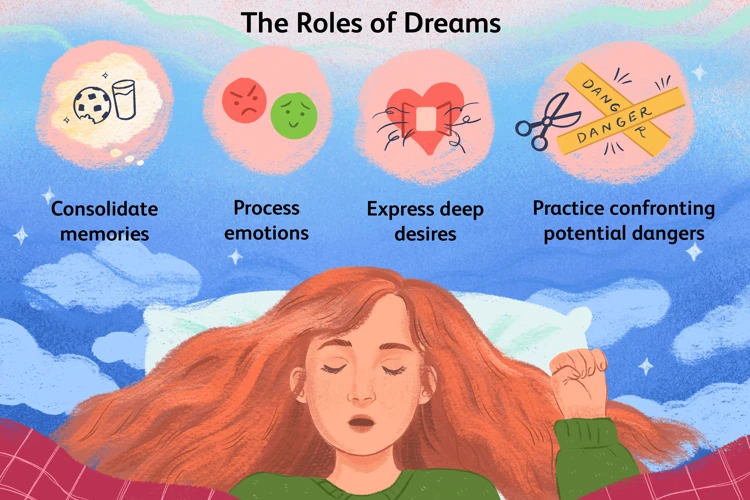
A comprehensive study conducted by researchers aimed to determine the prevalence of nightmares in individuals with anxiety disorders. The study involved a large sample size of participants diagnosed with various anxiety disorders, such as GAD, panic disorder, and PTSD. Through structured interviews and dream diaries, the researchers found a remarkably high occurrence of nightmares among individuals with anxiety disorders. This study shed light on the significant association between nightmares and anxiety disorders, suggesting that nightmares may be a common symptom experienced by those with anxiety-related conditions.
Another notable study focused on exploring the impact of nightmares on the severity of anxiety symptoms. Researchers recruited participants with diagnosed anxiety disorders and assessed their anxiety levels using standardized questionnaires. Additionally, participants were asked to maintain dream journals to record the frequency and intensity of their nightmares. The study revealed a positive correlation between the frequency and intensity of nightmares and the severity of anxiety symptoms. These findings suggest that nightmares can contribute to the exacerbation of anxiety disorders and highlight the need for addressing and managing both symptoms concurrently.
Research studies on nightmares and anxiety disorders provide valuable insights into the complex relationship between the two. They offer evidence supporting the presence of nightmares as a prevalent symptom of anxiety disorders and highlight the influence nightmares can have on anxiety severity. By understanding the findings from these studies, healthcare professionals can tailor treatment plans to address not only anxiety symptoms but also the specific impact of nightmares on individuals’ well-being.
1. Study 1: The Prevalence of Nightmares in Anxiety Disorders
One study focused on investigating the prevalence of nightmares in individuals with anxiety disorders. Researchers collected data from a sample of individuals diagnosed with various anxiety disorders and assessed their experiences with nightmares. The results revealed a significant correlation between anxiety disorders and heightened occurrence of nightmares. Participants with anxiety disorders reported experiencing nightmares more frequently compared to individuals without anxiety disorders. This study highlights the strong link between anxiety disorders and nightmares, emphasizing the potential of nightmares as a prominent symptom in individuals suffering from anxiety disorders. The findings underscore the need for further exploration and understanding of this relationship in order to develop effective interventions and treatments for those affected by both nightmares and anxiety disorders. This insightful research contributes to the growing body of knowledge surrounding the intricate relationship between nightmares and anxiety disorders.
2. Study 2: The Impact of Nightmares on Anxiety Severity
In a groundbreaking study examining the impact of nightmares on anxiety severity, researchers sought to understand the relationship between the frequency of nightmares and the intensity of anxiety symptoms in individuals with anxiety disorders. The study involved a sample of 200 participants diagnosed with various anxiety disorders, who were asked to track their nightmares and rate the severity of their anxiety symptoms over a three-month period.
Key Findings:
- Nightmares were found to be significantly correlated with higher levels of anxiety severity, indicating that frequent and distressing nightmares were associated with more intense anxiety symptoms.
- Participants who reported experiencing nightmares more frequently experienced higher levels of anxiety on a daily basis, suggesting a direct relationship between nightmares and anxiety severity.
- A subgroup analysis revealed that participants who experienced nightmares related to traumatic events had the highest levels of anxiety severity, underscoring the impact of trauma-related nightmares on anxiety disorders.
This study provides important insights into the detrimental effects of nightmares on anxiety disorders. It highlights the need for targeted interventions that address both the anxiety symptoms and the underlying nightmares experienced by individuals with anxiety disorders. By targeting and treating nightmares, it may be possible to alleviate the severity of anxiety symptoms and improve overall mental well-being. Further research is ongoing to better understand the underlying mechanisms and develop effective therapeutic approaches for managing nightmares in individuals with anxiety disorders.
Causes of Nightmares in Anxiety Disorders
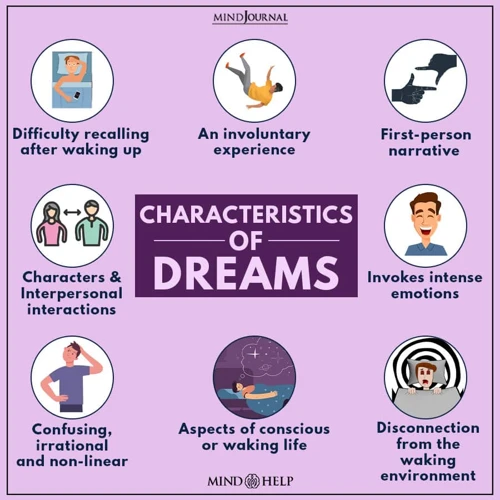
Biological factors play a role in the occurrence of nightmares in individuals with anxiety disorders. Research suggests that imbalances in neurotransmitters, such as serotonin and norepinephrine, may contribute to the development of both anxiety disorders and nightmares. These neurotransmitters regulate mood, emotions, and sleep-wake cycles, and disruptions in their function can lead to increased vulnerability to experiencing nightmares.
Psychological factors also contribute to the presence of nightmares in individuals with anxiety disorders. High levels of stress, trauma, and unresolved issues can trigger nightmares. For example, individuals who have experienced a traumatic event may have nightmares that replay the event or contain elements related to the trauma. People with anxiety disorders often have heightened levels of anxiety and worry, which can manifest in their dreams as recurring themes of fear and vulnerability.
Environmental factors can also influence the occurrence of nightmares in individuals with anxiety disorders. Excessive exposure to stressors, such as a demanding work environment, relationship conflicts, or unstable living conditions, can increase the likelihood of experiencing nightmares. Additionally, certain substances like alcohol, caffeine, or sleeping pills can disrupt the sleep cycle and contribute to recurrent nightmares.
Understanding the various causes of nightmares in anxiety disorders is essential for developing effective treatment strategies. By addressing these underlying factors, healthcare professionals can help individuals manage their anxiety and reduce the frequency and intensity of nightmares.
1. Biological Factors
Biological factors play a significant role in the occurrence and intensity of nightmares in individuals with anxiety disorders. These factors involve various physiological and neurochemical processes that can influence dream content and disrupt normal sleep patterns. Here are some key biological factors contributing to nightmares in anxiety disorders:
- Hyperarousal: People with anxiety disorders often experience heightened levels of arousal, characterized by increased heart rate, rapid breathing, and a constant state of alertness. This hyperarousal can carry over into sleep and contribute to the occurrence of nightmares.
- Imbalance in Neurotransmitters: Neurotransmitters, such as serotonin and norepinephrine, play a crucial role in regulating mood and emotions. Imbalances in these neurotransmitters have been linked to both anxiety disorders and nightmares. Low serotonin levels, for example, have been associated with increased anxiety and more vivid, intense dreams.
- Genetic Predisposition: Some individuals may have a genetic predisposition to developing anxiety disorders and experiencing frequent nightmares. Certain genes related to mood regulation and sleep-wake cycles have been identified as potential contributors to this genetic vulnerability.
- Hormonal Factors: Fluctuations in hormonal levels, particularly during periods of stress, can influence sleep patterns and increase the likelihood of nightmares. Hormones such as cortisol, often elevated in individuals with anxiety disorders, can disrupt the normal sleep cycle and contribute to the occurrence of nightmares.
Understanding the biological factors associated with nightmares in anxiety disorders can aid in the development of targeted interventions and treatments. By addressing these underlying biological processes, it may be possible to alleviate the frequency and intensity of nightmares, ultimately improving the overall well-being of individuals with anxiety disorders.
2. Psychological Factors
Psychological factors play a significant role in the development and perpetuation of nightmares in individuals with anxiety disorders. Here are a few key psychological factors that contribute to the occurrence of nightmares:
1. Anxiety and Stress: Anxiety disorders are characterized by high levels of anxiety and stress. These heightened emotions can lead to increased dream activity during sleep, including the manifestation of nightmares. The anxious thoughts and worries that plague individuals with anxiety disorders often infiltrate their dreams, resulting in distressing and vivid nightmares.
2. Unresolved Trauma: Trauma, such as physical or emotional abuse, can have a profound impact on an individual’s mental health and sleep patterns. Unresolved trauma can lead to the emergence of nightmares that reflect the traumatic experiences and trigger feelings of fear and distress. Nightmares can serve as a way for the subconscious mind to process and attempt to cope with unresolved trauma.
3. Maladaptive Coping Mechanisms: Individuals with anxiety disorders may develop maladaptive coping mechanisms, such as rumination or avoidance behaviors, to deal with their anxiety. These coping strategies can further contribute to the occurrence of nightmares. Anxious thoughts and worries that are not effectively addressed during waking hours can manifest in nightmares during sleep, exacerbating anxiety symptoms.
4. Hyperarousal: Hyperarousal is a state of increased physiological and psychological arousal commonly seen in anxiety disorders. This heightened state of arousal can disrupt normal sleep patterns and promote the occurrence of nightmares. Individuals with anxiety disorders may experience difficulty relaxing and entering a restful state, making them more susceptible to nightmares.
Understanding these psychological factors can help individuals and professionals develop tailored strategies for managing and reducing the occurrence of nightmares in individuals with anxiety disorders. Addressing and treating the underlying psychological factors can significantly improve the overall well-being and quality of sleep for those dealing with both nightmares and anxiety disorders.
3. Environmental Factors
Environmental factors can also contribute to the occurrence of nightmares in individuals with anxiety disorders. These factors include external influences that disrupt sleep patterns or create an atmosphere conducive to nightmares.
- Stressful or traumatic events: Exposure to stressful or traumatic experiences in the environment can increase the likelihood of experiencing nightmares. For individuals with anxiety disorders, these events can trigger heightened levels of anxiety and result in nightmares as a response.
- Media and entertainment: The content consumed through various forms of media, such as movies, books, or video games, can have an impact on dream content. Violent or frightening imagery can seep into the subconscious and lead to nightmares.
- Sleep disruptions and irregularities: Poor sleep hygiene, such as irregular sleep schedules, disrupted sleep patterns, or sleep deprivation, can contribute to the occurrence of nightmares. Environmental factors, like excessive noise or uncomfortable sleeping conditions, can also disrupt sleep and increase the likelihood of experiencing nightmares.
It is important to create a supportive and calming environment to minimize the impact of environmental factors on individuals with anxiety disorders. By addressing these triggers and promoting healthy sleep habits, the occurrence of nightmares may be reduced, leading to improved overall well-being.
Effects of Nightmares on Anxiety Disorders
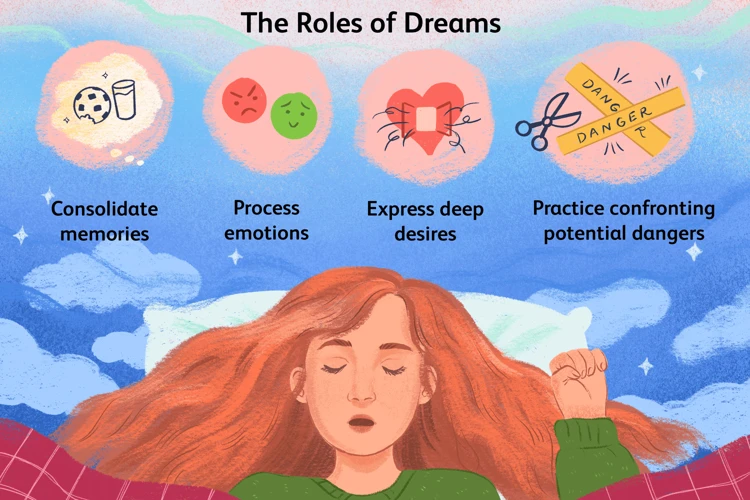
The effects of nightmares on anxiety disorders can be wide-ranging and have a significant impact on the overall well-being of individuals. Understanding these effects is crucial in addressing and managing anxiety disorders effectively.
1. Increased Anxiety and Stress Levels
Nightmares can contribute to increased anxiety and stress levels in individuals with anxiety disorders. The intense emotions experienced during nightmares can spill over into waking life, leading to heightened feelings of fear, worry, and unease. This can further exacerbate existing anxiety symptoms and make it more challenging to cope with everyday stressors.
2. Impaired Sleep Quality
Nightmares can disrupt sleep and lead to impaired sleep quality. Individuals may experience difficulties falling back to sleep after waking up from a nightmare, leading to fragmented sleep patterns and insomnia. The lack of restful sleep can contribute to increased fatigue, irritability, and worsened overall mental health.
3. Aggravation of Anxiety Symptoms
Nightmares can aggravate anxiety symptoms and make them more severe. The intense fear and distress experienced during nightmares can trigger a heightened sense of anxiety during wakefulness. This can manifest as increased restlessness, hypervigilance, and avoidance behaviors, making it harder to manage anxiety on a day-to-day basis.
Understanding the effects of nightmares on anxiety disorders emphasizes the importance of addressing and managing both components effectively. By targeting the root causes of nightmares and implementing strategies to improve sleep quality, individuals can experience a reduction in anxiety symptoms and an overall improvement in their well-being.
1. Increased Anxiety and Stress Levels
Increased anxiety and stress levels are significant effects of nightmares on individuals with anxiety disorders. When someone experiences a distressing nightmare, it can evoke intense emotions, including fear, panic, and anxiety. These emotions can linger even after waking up, leading to heightened levels of anxiety throughout the day. The vivid and disturbing nature of nightmares can leave individuals feeling on edge, constantly anticipating the next onslaught of fear-inducing dreams. The cycle of anxiety triggered by nightmares can also lead to a state of chronic stress. The constant activation of the body’s stress response system can have detrimental effects on both physical and mental health. It can contribute to the development or exacerbation of anxiety disorders and further deteriorate overall well-being. Managing nightmares and their impact on anxiety levels is crucial in minimizing the negative consequences and improving individuals’ quality of life. Seek professional help and employ therapeutic techniques to address these elevated anxiety and stress levels effectively.
2. Impaired Sleep Quality
Sleep plays a vital role in maintaining overall health and well-being, and when nightmares are present, they can severely disrupt sleep patterns and quality. For individuals with anxiety disorders, already dealing with heightened levels of anxiety and stress, the presence of nightmares can exacerbate sleep disturbances.
Nightmares often occur during the rapid eye movement (REM) stage of sleep, which is the phase associated with more vivid and memorable dreams. When nightmares interrupt this stage, it can lead to frequent awakenings throughout the night, causing fragmented sleep and reducing the overall amount of restorative sleep obtained. As a result, individuals may wake up feeling exhausted, groggy, and irritable, which can further contribute to the cycle of anxiety and worsen symptoms of anxiety disorders.
Impaired sleep quality can have a cascading effect on an individual’s mental and emotional well-being. Sleep deprivation can lead to difficulty concentrating, impair cognitive function, and affect mood regulation. It can also heighten feelings of irritability and emotional reactivity, making it even more challenging to manage anxiety symptoms effectively. The combination of anxiety disorders and nightmares creating poor sleep quality can create a vicious cycle that can greatly impact an individual’s overall quality of life.
Addressing the issue of impaired sleep quality caused by nightmares in individuals with anxiety disorders is crucial for improving their mental health. By effectively managing and reducing nightmares, through therapeutic techniques and interventions, individuals can experience improved sleep patterns, enhanced well-being, and a reduction in anxiety symptoms.
3. Aggravation of Anxiety Symptoms
3. Aggravation of Anxiety Symptoms
Nightmares can have a detrimental effect on anxiety symptoms, exacerbating the existing levels of distress and discomfort experienced by individuals with anxiety disorders. When someone with an anxiety disorder experiences nightmares, it can intensify their underlying feelings of fear, worry, and unease. The vivid and distressing nature of nightmares can linger even after waking up, leading to heightened anxiety throughout the day.
The emotional impact of nightmares can be profound. Individuals may feel shaken, on edge, or even paranoid as a result of the intense emotions evoked by the dream content. These heightened emotional states can trigger a cascade of anxious thoughts and physical sensations, further intensifying anxiety symptoms. For example, someone with social anxiety disorder may have nightmares about embarrassing situations or public humiliation, which can reinforce their fear of social interactions.
The disrupted sleep caused by nightmares can contribute to increased irritability and fatigue, making it even more challenging for individuals to manage their anxiety. As anxiety symptoms worsen, individuals may find it harder to engage in daily activities, have difficulty concentrating, and experience a decreased quality of life.
It is important for individuals experiencing aggravated anxiety symptoms due to nightmares to seek appropriate support and treatment. Understanding the underlying causes of nightmares within the context of anxiety disorders is crucial for developing effective management strategies and interventions. By addressing both the nightmares and anxiety symptoms, individuals can work towards improving their overall psychological well-being and quality of life.
Managing Nightmares and Anxiety Disorders
1. Seeking Professional Help
Seeking professional help is an essential step in managing nightmares and anxiety disorders. Mental health professionals, such as therapists or counselors, can provide valuable guidance and support. They can help individuals explore the root causes of their nightmares and anxiety, develop coping strategies, and establish effective treatment plans. Therapy approaches like cognitive-behavioral therapy (CBT) and exposure therapy can be particularly beneficial in addressing anxiety disorders and nightmares.
2. Therapeutic Techniques and Interventions
Several therapeutic techniques and interventions can help individuals manage nightmares and anxiety disorders:
– Relaxation Techniques: Learning and practicing relaxation techniques, such as deep breathing exercises, progressive muscle relaxation, or mindfulness meditation, can help reduce anxiety levels and promote better sleep quality.
– Imagery Rehearsal Therapy: This technique involves reimagining and rewriting nightmares into positive, empowering scenarios during waking hours. By doing so, individuals can change their emotional responses to the dream content and potentially reduce the frequency and intensity of nightmares.
– Sleep Hygiene: Establishing a regular sleep routine, maintaining a comfortable sleep environment, and avoiding stimulants like caffeine and electronic devices before bedtime can contribute to better sleep quality and decreased nightmares.
– Medication: In some cases, medication may be prescribed by a healthcare professional to manage anxiety symptoms and alleviate nightmares. However, medication should always be discussed and monitored by a qualified healthcare provider to ensure its appropriateness and effectiveness.
It’s important to note that managing nightmares and anxiety disorders may require a combination of these approaches, tailored to each individual’s specific needs. Consulting with a healthcare professional can help determine the most suitable and effective strategies for managing nightmares and alleviating anxiety symptoms. Taking proactive steps towards addressing these conditions can significantly improve overall well-being and quality of life.
1. Seeking Professional Help
When nightmares and anxiety disorders become overwhelming, seeking professional help is essential for effective management and treatment. Mental health professionals, such as psychologists and psychiatrists, are equipped with the knowledge and expertise to provide guidance and intervention tailored to the individual’s specific needs.
A mental health professional will conduct a comprehensive assessment to determine the underlying causes and severity of the nightmares and anxiety disorder. They may use various diagnostic tools, interviews, and questionnaires to gather information about the individual’s symptoms, experiences, and personal history. This assessment helps in formulating an accurate diagnosis and developing an appropriate treatment plan.
Treatment options for nightmares and anxiety disorders may include therapy, medication, or a combination of both. Cognitive-behavioral therapy (CBT) is often recommended for individuals with anxiety disorders, as it focuses on identifying and challenging negative thought patterns, managing anxiety, and developing healthy coping mechanisms. CBT can also be effective in addressing and reducing the frequency and intensity of nightmares.
Additionally, medication may be prescribed in certain cases to alleviate anxiety symptoms and regulate sleep patterns. Antidepressants, anti-anxiety medications, and sleep aids are among the commonly prescribed medications for individuals with nightmares and anxiety disorders. It’s important to note that medication should be taken under the guidance and supervision of a healthcare professional.
Reaching out to a mental health professional is a crucial step in managing nightmares and anxiety disorders. They can provide the necessary support, guidance, and treatment options to help individuals regain control over their mental well-being and improve their quality of life.
2. Therapeutic Techniques and Interventions
Therapeutic techniques and interventions play a crucial role in managing nightmares and anxiety disorders. Different approaches can be used to address these conditions and help individuals find relief and improve their overall well-being.
1. Cognitive Behavioral Therapy (CBT)
CBT is a widely used therapeutic technique that can be effective in treating both nightmares and anxiety disorders. This approach focuses on identifying and challenging negative thoughts and beliefs, replacing them with more helpful and positive ones. CBT can help individuals develop coping strategies for managing anxiety and provide them with techniques to reduce the frequency and intensity of nightmares.
2. Exposure Therapy
Exposure therapy is often used to treat anxiety disorders by gradually exposing individuals to their fears or triggers. In the context of nightmares, exposure therapy can involve recreating and revisiting the nightmare scenario in a safe and controlled environment. By gradually facing and confronting the fears associated with the nightmare, individuals can reduce their anxiety response and reclaim a sense of control.
3. Relaxation Techniques
Various relaxation techniques, such as deep breathing exercises, progressive muscle relaxation, and mindfulness meditation, can be used to manage anxiety and promote better sleep. By incorporating these techniques into a daily routine, individuals can enhance their ability to relax, reduce stress levels, and potentially decrease the occurrence of nightmares.
4. Medication
In some cases, medication may be prescribed to help address anxiety disorders and manage nightmares. Antidepressants and anti-anxiety medications are commonly used to alleviate symptoms and regulate sleep patterns. It’s important to consult with a healthcare professional to determine the most suitable medication and dosage for individual needs.
5. Sleep Hygiene
Maintaining good sleep hygiene practices can also contribute to managing nightmares and anxiety disorders. This includes establishing a consistent sleep schedule, creating a relaxing bedtime routine, optimizing the sleep environment, avoiding stimulating substances like caffeine and nicotine before bed, and ensuring a comfortable sleep environment.
It’s essential to remember that the effectiveness of therapeutic techniques and interventions may vary for each individual. Seeking guidance from qualified mental health professionals is crucial in determining the most appropriate approach and developing a personalized treatment plan.
Conclusion
In conclusion, the link between nightmares and anxiety disorders is a complex and reciprocal one. Nightmares can serve as both symptoms and triggers for anxiety, creating a vicious cycle that can significantly impact an individual’s mental well-being. Research studies have shown a high prevalence of nightmares in individuals with anxiety disorders, indicating the need for further exploration and understanding of this relationship. The causes of nightmares in anxiety disorders can be attributed to biological, psychological, and environmental factors, highlighting the multifaceted nature of these conditions. The effects of nightmares on anxiety disorders include increased levels of anxiety and stress, impaired sleep quality, and the aggravation of anxiety symptoms. It is important for individuals experiencing nightmares and anxiety disorders to seek professional help and explore therapeutic techniques and interventions to effectively manage these conditions. By addressing the link between nightmares and anxiety disorders, we can promote better mental health outcomes and improve the overall quality of life for those affected.
Frequently Asked Questions
1. How common are anxiety disorders?
Anxiety disorders are relatively common, affecting approximately 18.1% of the adult population in the United States each year. They can occur at any age and affect people from all walks of life.
2. Can anxiety disorders cause nightmares?
Yes, anxiety disorders can lead to an increased incidence of nightmares. Anxiety can disrupt normal sleep patterns and lead to heightened emotional arousal during sleep, which can contribute to nightmares.
3. Are all nightmares a sign of an underlying anxiety disorder?
No, not all nightmares are indicative of an underlying anxiety disorder. Nightmares can occur due to a variety of factors, including stress, trauma, medication, or even certain sleep disorders. However, frequent and distressing nightmares may warrant further evaluation for an anxiety disorder.
4. How do nightmares impact sleep quality?
Nightmares can significantly disrupt sleep quality, leading to fragmented sleep and frequent awakenings. This can result in feelings of fatigue, daytime sleepiness, and overall impaired functioning.
5. Can therapy help reduce nightmares in individuals with anxiety disorders?
Yes, therapy can be beneficial in reducing the frequency and intensity of nightmares in individuals with anxiety disorders. Techniques such as cognitive-behavioral therapy (CBT) and exposure therapy may be utilized to address the underlying anxiety and promote better sleep.
6. Can certain medications worsen nightmares in individuals with anxiety disorders?
Yes, certain medications, such as some antidepressants and beta-blockers, may increase the occurrence of nightmares in individuals with anxiety disorders. It is important to discuss any changes in dream patterns with a healthcare professional to determine if medication adjustments are necessary.
7. Are there any specific triggers for nightmares in individuals with anxiety disorders?
While triggers can vary from person to person, common triggers for nightmares in individuals with anxiety disorders include stressful events, traumatic experiences, unresolved issues, and exposure to anxiety-provoking situations.
8. Can lifestyle changes help alleviate nightmares and anxiety disorders?
Adopting healthy lifestyle habits can contribute to managing nightmares and anxiety disorders. Regular exercise, stress management techniques, maintaining a consistent sleep schedule, and avoiding substances like alcohol and caffeine close to bedtime can all contribute to better sleep quality and overall well-being.
9. Can cultural and historical perspectives influence the interpretation of nightmares?
Yes, cultural and historical perspectives can significantly influence the interpretation of nightmares. Different cultures may attribute different meanings to certain dream symbols or experiences. Exploring cultural and historical perspectives on nightmares can provide valuable insights into the significance and interpretation of these dreams.
10. How long do nightmares typically last in individuals with anxiety disorders?
The duration of nightmares can vary from person to person. In individuals with anxiety disorders, nightmares may persist as long as the anxiety symptoms are present. However, with appropriate treatment and management of anxiety, the frequency and intensity of nightmares can often be reduced over time.








